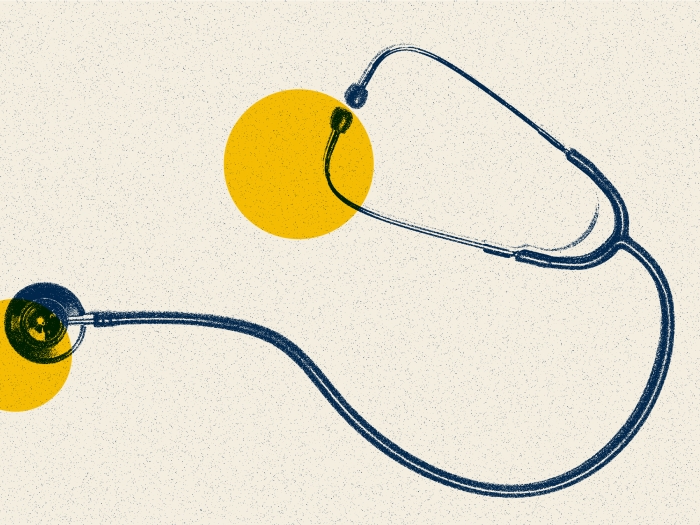Fast Forward Medical Innovation (FFMI), a unit of the Medical School Office of Research, has awarded a combined $3.3 million in funding to four biomedical research projects in the inaugural round of the Frankel Innovation Initiative - a $20 million gift from the Maxine and Stuart Frankel Foundation to support the research and development of life-saving therapies at Michigan Medicine, in collaboration with other institutions.
The winning projects are U-M faculty-led, cover a range of disciplines, and have the potential for rapid clinical application and groundbreaking impact.
The projects focus on biomedical innovations that could quickly advance cutting-edge therapies and bring novel approaches to improving health into the hands of clinicians and scientists. Funded projects include:
- Device to filter blood and treat sepsis in children – David Humes, M.D. (U-M) and Stuart Goldstein, M.D., FAAP, FNKF (Cincinnati Children’s Hospital)
- System to keep donor organs alive outside the body – Alvaro Rojas-Pena, M.D. (U-M) and Robert Bartlett, M.D. (U-M)
- Prosthetic hand that uses signals from the brain to move and sense – Paul Cederna, M.D. (U-M) and Cynthia Chestek, Ph.D. (U-M)
- Device to help predict preterm birth – Molly Stout, M.D., MSCI (U-M), Methodius Tuuli, M.D., M.P.H., M.B.A. (Indiana University), and Peinan Zhao, Ph.D. (Washington University in St. Louis).
Researchers presented their proposals to the Frankels and a Scientific Advisory Committee of world-renowned scientists and technology development professionals external to U-M.
“We were extremely impressed with the high-caliber projects presented at the Frankel Innovation Initiative selection meeting,” says Thomas F. Bumol, Ph.D., Chair of the Scientific Advisory Committee, Executive Vice President of the Allen Institute, and Director of the Allen Institute for Immunology in Seattle. “U-M is a leader in translational medicine and at the forefront of biomedical innovation. We believe the winning projects possess the potential to have a tremendous impact on health and patient care around the world.”
In addition to providing their expertise and guidance to the Frankel investigators, the committee will leverage their combined experience to harness the creative ingenuity of the investigators and help direct the translation from cutting-edge innovation to life-saving medical practice.
The Frankel Innovation Initiative is designed to build on best practices of the standout programs developed at U-M and other top institutions, and capitalizes on U-M’s extensive biomedical research enterprise as the top public university in research spending in the United States. The $20 million gift will be used to fund four to seven projects annually, with each project receiving between $250,000 – $1 million.
“This very generous gift from the Frankels will take these four innovative projects to the next level,” says Marschall S. Runge, M.D., Ph.D. “The foresight and funding of this initiative will provide the critical support needed for these investigators to quickly move their innovations in areas of great patient need.”
The Initiative is administered by Fast Forward Medical Innovation, a group at Michigan Medicine that has the proven expertise and unique resources to work with faculty to bring together biomedical innovation and entrepreneurship and achieve life-saving results.
FFMI offers resources and support to world-class biomedical researchers at the university and across the state. This unit at U-M provides groundbreaking funding programs, dynamic educational offerings, and deep industry connections that help biomedical researchers navigate the road to successful innovation and commercialization, with the ultimate goal of positively impacting human health. For more information about FFMI, click here.

Department of Communication at Michigan Medicine





